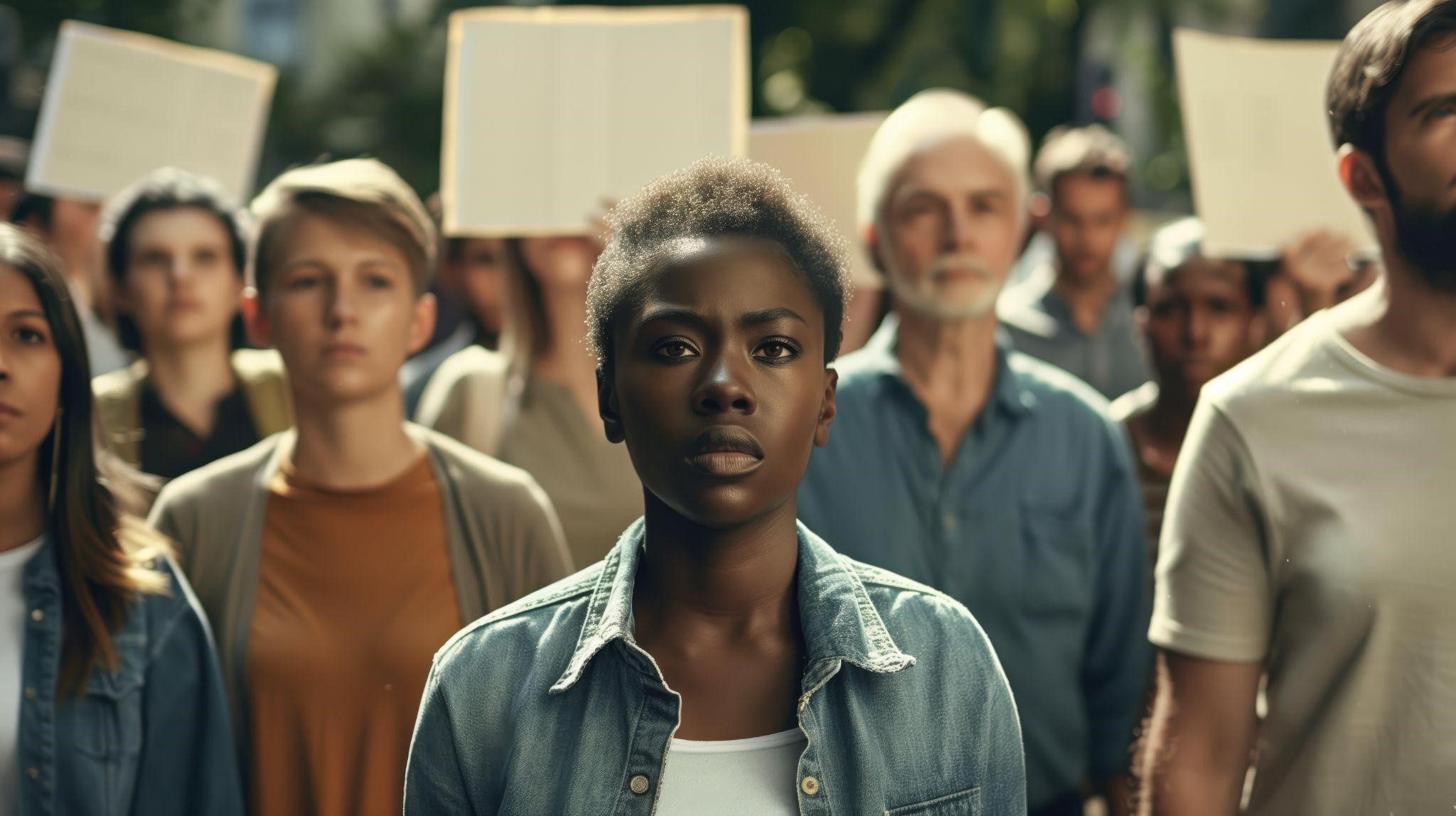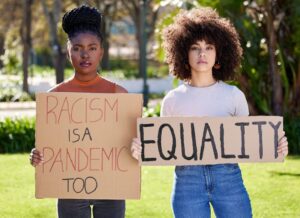Modern racial justice issues are not just historical remnants; they’re living realities that continue to shape who gets to thrive and who gets left behind in America.
If you care about building a fairer society, it’s crucial to understand why these issues persist and what’s truly at stake for our nation’s future.
Let’s explore where we stand, what challenges remain, and how you can contribute to shaping a more inclusive tomorrow.
Why Modern Racial Justice Issues Are Far From Over
You might think that civil rights victories of the past solved America’s racial problems. Yet every day, new headlines remind us that racism is alive in our institutions, policies, and cultural narratives.
From the criminal justice system to economic opportunity, modern racial justice issues continue to expose deep cracks in America’s promise of equality.
Consider these facts:
- Black Americans are incarcerated at nearly five times the rate of white Americans.
- The median wealth of white families in the U.S. is more than seven times higher than that of Black families.
- Black women face significantly higher maternal mortality rates compared to white women.
- Schools remain deeply segregated, with students of color disproportionately attending underfunded schools.
These numbers are not coincidences. They are evidence of systemic racism—a pattern of social and institutional structures that unfairly disadvantage people based on race.
The High Stakes: What Happens If We Ignore the Problem?
If America continues to sidestep modern racial justice issues, the consequences will reach far beyond the communities most directly affected. Racial inequality has ripple effects that touch every aspect of society, including economic growth, social stability, and even national security.
When entire communities are denied opportunities, we all lose out on untapped talent and innovation.
Racism also costs the U.S. economy billions each year in lost productivity, health care costs, and legal expenses related to discrimination. Beyond the financial impact, there’s an even deeper moral question: Who do we want to be as a nation?
By ignoring racial justice, you risk passing on a deeply fractured society to future generations—one where distrust and division threaten to erode democracy itself.
Systemic Racism: It’s More Than Individual Prejudice
One of the biggest misunderstandings about modern racial justice issues is the idea that racism is just about personal prejudice. In reality, it’s about systems and structures that produce unequal outcomes, even when individuals may not intend harm.
For example:
- Housing: Redlining and discriminatory lending have locked Black families out of homeownership for decades, a key driver of generational wealth.
- Criminal Justice: Racial profiling, harsher sentencing, and police violence disproportionately target communities of color.
- Education: Funding formulas tied to property taxes often leave schools in Black and Brown neighborhoods under-resourced.
- Healthcare: Bias in medical research and treatment leads to worse health outcomes for people of color.
Once you understand racism as systemic, you can better see why small, isolated solutions rarely bring lasting change.
Lessons From History—and Why They Still Matter
While modern racial justice challenges feel urgent, they are rooted in a long history of oppression and resistance. In his book The Black Man in America: The Plight of Black Men and Boys in the US, Dr. Iheanyi D. Okoroafor documents how Black Americans have endured centuries of systemic discrimination.
He highlights the resilience and courage it took to fight for basic rights—lessons that continue to inspire those who stand up for justice today.
Learning from this history can empower you to see racial justice not as an impossible ideal, but as a movement you can join.
Understanding the past makes it easier to see how today’s struggles connect to yesterday’s injustices, and why your voice matters in shaping what comes next.
Intersectionality: Understanding How Racial Justice Connects to Other Struggles
Modern racial justice issues don’t exist in isolation. They intersect with other forms of discrimination, such as gender inequality, economic disparity, LGBTQ+ rights, and immigrant justice.
This concept, called intersectionality, was popularized by legal scholar Kimberlé Crenshaw and is crucial for understanding how people can experience overlapping layers of oppression.
For instance:
- Black women often face wage gaps larger than those faced by white women or Black men.
- LGBTQ+ people of color are at higher risk of homelessness and violence.
- Immigrants of color often experience racial profiling and harsher immigration enforcement.
When you look at racial justice through an intersectional lens, you see that fighting for one group’s rights strengthens the fight for everyone’s rights.
How You Can Take Action
The challenges may feel overwhelming, but change is possible—and it begins with you. Here are practical ways you can contribute to addressing modern racial justice issues:
1. Educate Yourself—and Others
Start with books, articles, podcasts, and documentaries. Seek out Black and Brown voices. Share what you learn in conversations with friends, family, and colleagues.
2. Speak Up and Use Your Platform
Whether you’re in a classroom, workplace, or online, your voice matters. Challenge racist jokes, stereotypes, and harmful language when you hear them.
3. Support Organizations Doing the Work
Donate time, skills, or money to nonprofits fighting racial injustice, such as the NAACP Legal Defense Fund, Color of Change, or local grassroots movements.
4. Advocate for Policy Changes
Call your elected officials. Push for policies addressing systemic racism, such as criminal justice reform, affordable housing, and equitable healthcare.
5. Vote with Racial Justice in Mind
Research candidates’ records on racial equity. Support leaders committed to dismantling systemic racism.
6. Listen to Those Affected
Center the voices of those most impacted by racial injustice. Let them guide the solutions.

The Road Ahead: Building a Just and Inclusive America
Modern racial justice issues are not insurmountable, but they demand courage, honesty, and collective action. The work is not just for activists or policymakers, it’s for you.
You have the power to help dismantle harmful systems and build new ones rooted in equity and respect. America’s future depends on whether we confront these challenges or allow them to deepen.
The choice is yours: Will you be a bystander, or part of the movement shaping a fairer society for generations to come?
Take the Next Step: If you’re ready to explore these issues in depth and learn from history’s lessons, get your copy of The Black Man in America by Dr. Iheanyi Okoroafor. Equip yourself with the knowledge and perspective to help create the America we all deserve.




